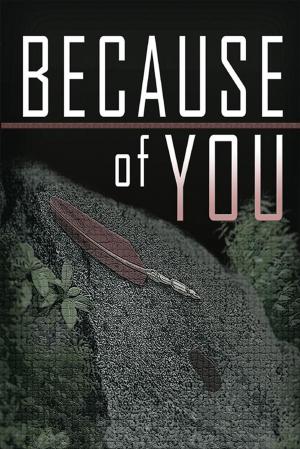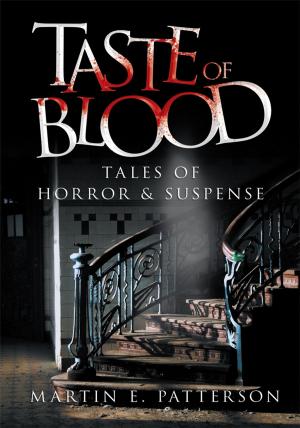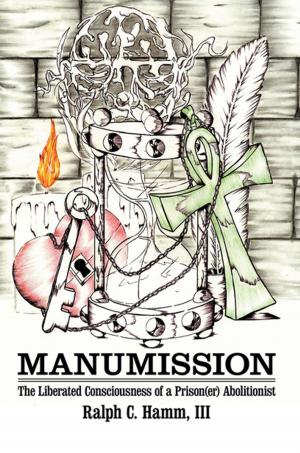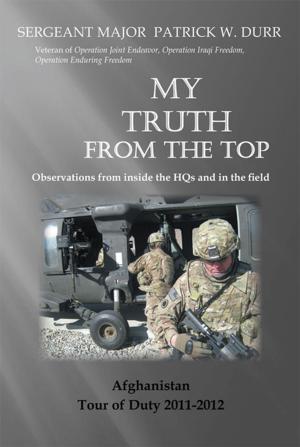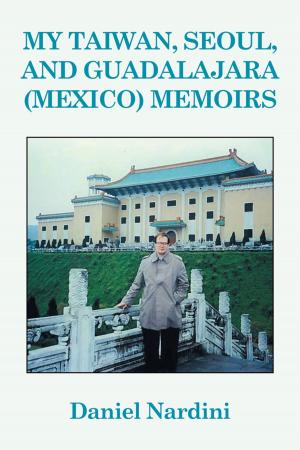| Author: | Patrick Norris | ISBN: | 9781469116198 |
| Publisher: | Xlibris US | Publication: | September 8, 2005 |
| Imprint: | Xlibris US | Language: | English |
| Author: | Patrick Norris |
| ISBN: | 9781469116198 |
| Publisher: | Xlibris US |
| Publication: | September 8, 2005 |
| Imprint: | Xlibris US |
| Language: | English |
I have spent several years studying the history of the Tae-zak Republic. During my research I was introduced to a Tralain bard named Lo-an Sar. I was told that he knew the entire history of the most critical part of Tae-zak history, the wars with the Gorgan Empire. When I sat down with him, Lo-an Sar began to recite his Chronicles of the Gorgan Wars. He recited the accomplishments of their heroes, their suffering and their sacrifice. He told of how the wars had begun and how they had ended. He sang the praises of the cruiser Dauntless and her gallant crew and many others. He talked about the wisdom and leadership of Loar-ren Cal, and the attempts of many to undermine the war. He also mentioned the folly of the Gorgan Emperor, Gorgas II. From the start, I knew that I had to share these tales with you, the reader. But this would be a huge task. It had taken weeks for a complete recounting of the Chronicles. This presented me with a problem; the Chronicles were simply too long for me to put into one book. I knew that this effort would take many volumes and several years to write. So, I asked him to tell me what he considered to be the most significant event of the war. His response was that he regarded The Raid on Albra III to be the single most significant event. I have to admit that I missed the story when he told me. There were many other battles that appeared to be more important. They had more soldiers and ships involved, or the battles were fought over something that appeared to be more valuable. The Raid only involved eleven ships and four hundred Tae-zak soldiers. I didnt understand why this little battle was so significant. But, he explained it again, and this time in much greater detail. The war between Tae-zak and the Gorgan Empire was several years old when the Tae-zak raided Albra III. This was the third war between the two nations. It was also the longest, and the Tae-zak had managed to check every advance the Empire had made into Tae-zak territory, but was unable to take the war to the Empire as they had done in the previous wars. The war had been fought to a stalemate. The Raid, as well as two other raids, was launched in retaliation for a series of attacks against Tae-zak colonies. Albra III was chosen because it had some strategic value, and because of the psychological value striking at a target that the Empire considered safe from Tae-zak attack. Everything pointed to a normal military operation. The strength of Albra IIIs garrison was known. The targets were clearly defined and within the capability of the force assigned to attack it. The colonists were considered to be only a limited threat. The only unknown factor was the location of the Gorgan Fleet, but the Tae-zak Fleet knew how to find and avoid Gorgan warships. Everything seemed to be set, and nothing unusual was expected. That was, until the 134th Squadron and the 991st Raider Battalion arrived at Albra III. When they arrived at Albra III, the raiders did not find anything they expected. Instead, the raiders were unopposed as they made their landing; they found that the city had been ravaged by an unknown attacker, and that the streets were empty of anything living. Their commander, Major Jumbira Sar, had to find out what had happened, and to determine if this unknown attacker is a threat to the Tae-zak as well as the Gorgan Empire. At the same time, he became aware of another threat that may have been as dangerous to his command as the Gorgans and the unknown attacker. Soldiers always pay a heavy price in war. Even those who are not injured still pay a price that is hard for those who have never experienced war cannot understand. Sometimes the actions of soldiers can do more than just win the battle. The Raid on Albra III was a crossroad in this war. There were forces working to make this a more savage war. They were opposed by those by those who sought a just end, and a lasting and j
I have spent several years studying the history of the Tae-zak Republic. During my research I was introduced to a Tralain bard named Lo-an Sar. I was told that he knew the entire history of the most critical part of Tae-zak history, the wars with the Gorgan Empire. When I sat down with him, Lo-an Sar began to recite his Chronicles of the Gorgan Wars. He recited the accomplishments of their heroes, their suffering and their sacrifice. He told of how the wars had begun and how they had ended. He sang the praises of the cruiser Dauntless and her gallant crew and many others. He talked about the wisdom and leadership of Loar-ren Cal, and the attempts of many to undermine the war. He also mentioned the folly of the Gorgan Emperor, Gorgas II. From the start, I knew that I had to share these tales with you, the reader. But this would be a huge task. It had taken weeks for a complete recounting of the Chronicles. This presented me with a problem; the Chronicles were simply too long for me to put into one book. I knew that this effort would take many volumes and several years to write. So, I asked him to tell me what he considered to be the most significant event of the war. His response was that he regarded The Raid on Albra III to be the single most significant event. I have to admit that I missed the story when he told me. There were many other battles that appeared to be more important. They had more soldiers and ships involved, or the battles were fought over something that appeared to be more valuable. The Raid only involved eleven ships and four hundred Tae-zak soldiers. I didnt understand why this little battle was so significant. But, he explained it again, and this time in much greater detail. The war between Tae-zak and the Gorgan Empire was several years old when the Tae-zak raided Albra III. This was the third war between the two nations. It was also the longest, and the Tae-zak had managed to check every advance the Empire had made into Tae-zak territory, but was unable to take the war to the Empire as they had done in the previous wars. The war had been fought to a stalemate. The Raid, as well as two other raids, was launched in retaliation for a series of attacks against Tae-zak colonies. Albra III was chosen because it had some strategic value, and because of the psychological value striking at a target that the Empire considered safe from Tae-zak attack. Everything pointed to a normal military operation. The strength of Albra IIIs garrison was known. The targets were clearly defined and within the capability of the force assigned to attack it. The colonists were considered to be only a limited threat. The only unknown factor was the location of the Gorgan Fleet, but the Tae-zak Fleet knew how to find and avoid Gorgan warships. Everything seemed to be set, and nothing unusual was expected. That was, until the 134th Squadron and the 991st Raider Battalion arrived at Albra III. When they arrived at Albra III, the raiders did not find anything they expected. Instead, the raiders were unopposed as they made their landing; they found that the city had been ravaged by an unknown attacker, and that the streets were empty of anything living. Their commander, Major Jumbira Sar, had to find out what had happened, and to determine if this unknown attacker is a threat to the Tae-zak as well as the Gorgan Empire. At the same time, he became aware of another threat that may have been as dangerous to his command as the Gorgans and the unknown attacker. Soldiers always pay a heavy price in war. Even those who are not injured still pay a price that is hard for those who have never experienced war cannot understand. Sometimes the actions of soldiers can do more than just win the battle. The Raid on Albra III was a crossroad in this war. There were forces working to make this a more savage war. They were opposed by those by those who sought a just end, and a lasting and j

